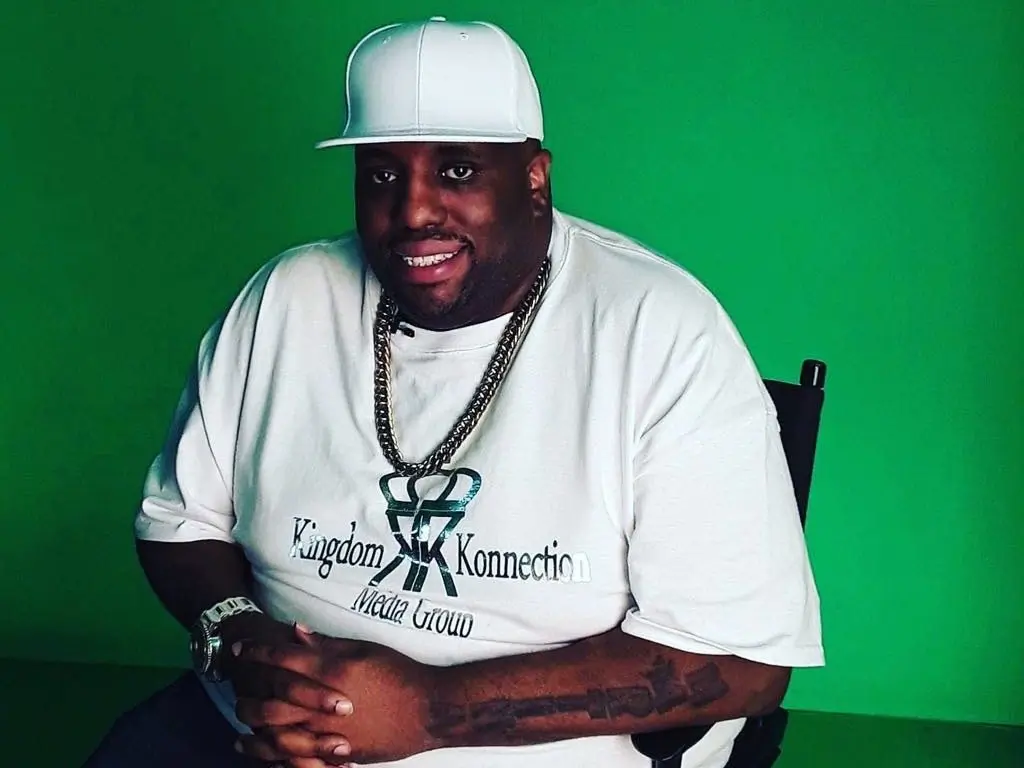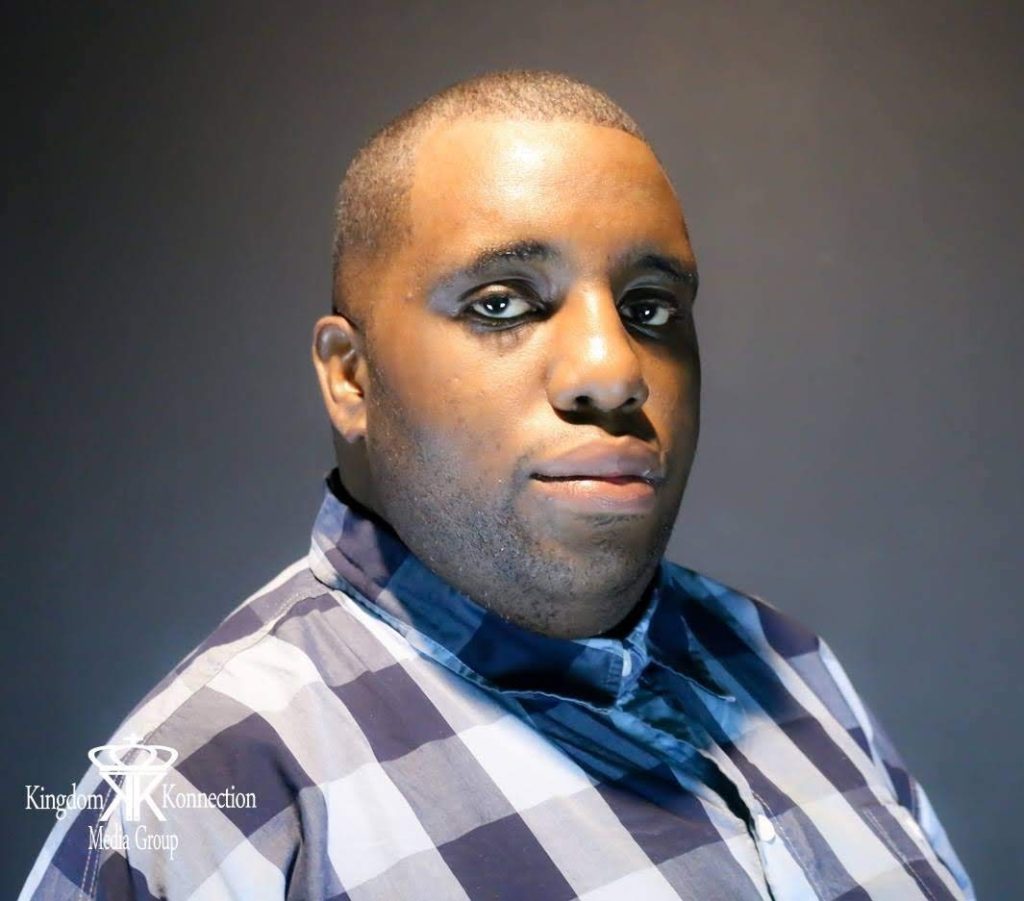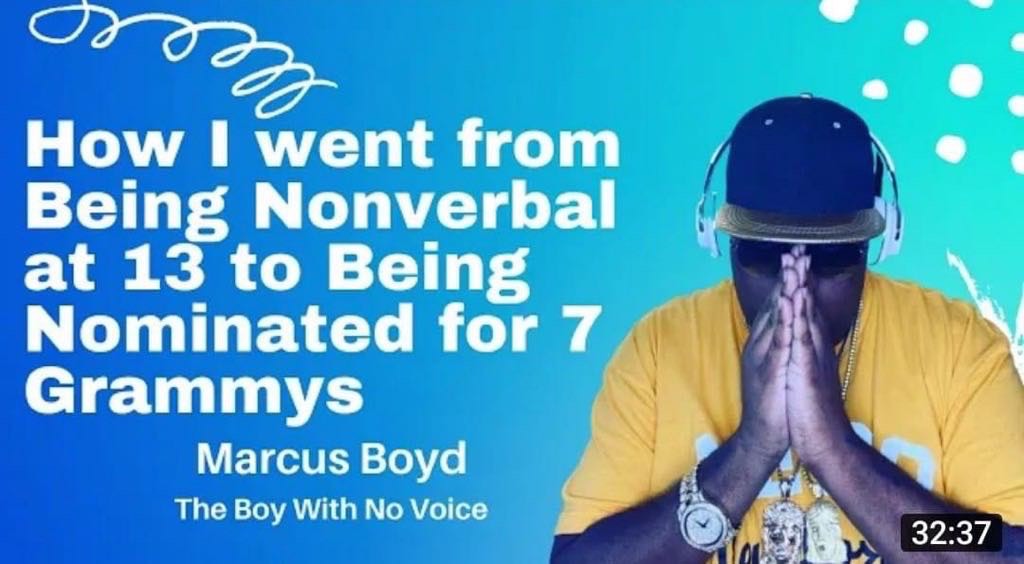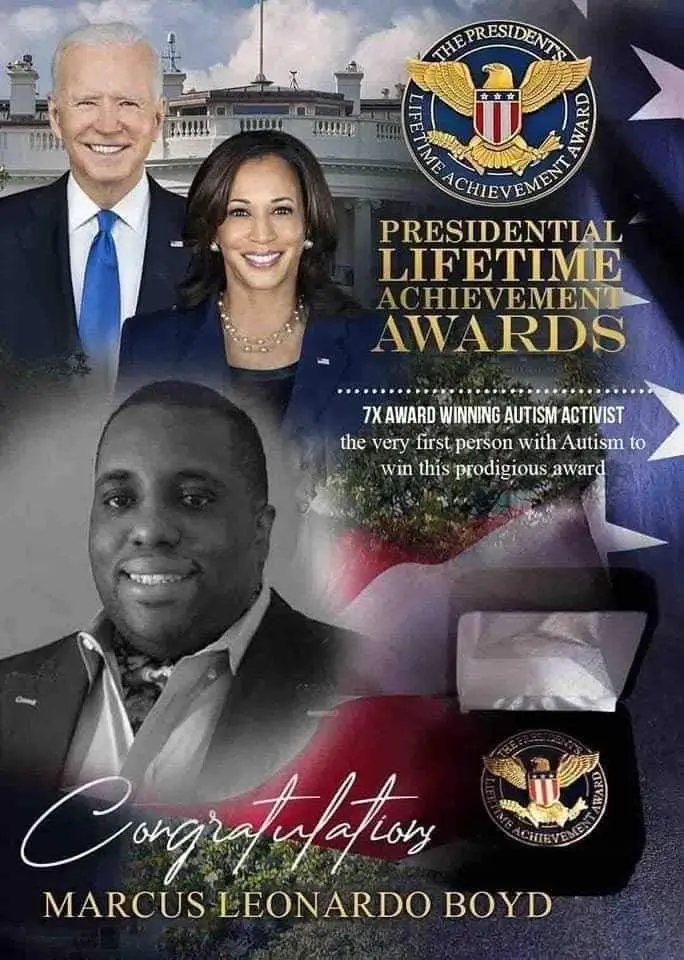Vicksburg’s newest resident, Marcus Boyd, is a Grammy-nominated composer, producer, clothing designer, author, filmmaker, and autism activist. Above all, Marcus Boyd is an autism activist, dedicated to raising awareness and fostering a more inclusive society for individuals on the spectrum.

In the world of autism advocacy, few names resonate as powerfully as Marcus Boyd. His journey, marked by personal challenges and profound triumphs, serves as an inspiration to many.

Rocky beginnings
Boyd’s path to autism advocacy is shaped by his personal experiences. Diagnosed with autism at 10 and nonverbal until 14, he grew up in a large, low-income family in Atlanta, facing severe abuse and neglect.
“My birth father couldn’t even accept the fact that I was rocking, having emotional behaviors,” Boyd said. “I was having sensory issues.”
When Boyd was just 4 years old, neighbors witnessed a horrific incident that led authorities to remove him from his home. Despite his young age, he vividly recalls the traumatic event in great detail.
“My birth father came home from work with his normal [routine], that was yelling, cursing, wanting his hot dinner and some liquor. And if he didn’t get it like he wanted it, then it would be horrific abuse on my birth mom. So on this day, I guess I was breathing too hard or I was in his way or he saw me and he felt disgusted, so when he saw me he asked my birth mom ‘What is this slow mother fuxxer doing in my living room? I thought I told you to keep him where I can’t see him.’
So, because she didn’t respond fast enough for him, he snatched me and drugged me outside in the front yard and he then pushed me and hit me in my chest and went to his red truck that was parked in the front yard and he got his gun. He put the gun in my mouth and he then pulled the trigger, but the gun kept jamming. Every time he tried the gun jammed so he got really upset and he kept hitting me with the gun. Blood was getting every where. Now, my birth mom was on the steps, didn’t move and didn’t say nothing.”
A much needed intervention
A neighbor saw this happening and intervened while his wife called the police. After receiving treatment for his wounds in the hospital, the state took custody of Boyd and assigned him a social worker, Dorothy Carr, who had attended high school with his birth mother. Due to this connection, Boyd finally had an advocate to provide resources and help him deal with his severe autism.
“You know, she took time…reading assistance programs and stuff like that. I had a speech therapist. Then I had a therapist…I had a doctor, Dr. King, that gave me my prescriptions and stuff of that nature. So, I mean, Dorothy Carr went over and beyond…my grandmother, my sisters went over and beyond.”
Overcoming misdiagnosis
Boyd recalls there was not much known about autism in the 1980s, so even those that wanted to help him struggled to understand what he was going through.
“It was never meant for me to talk. Eleven different doctors in two different states said that, basically, I’m a walking human vegetable,” Boyd said.
Even so, they persisted, albeit in some unconventional ways.
“My therapist used to take me to her mom’s house in the country part of Georgia, and her mom used to help me learn how to read and sticky notes and say objects and coloring and I mean…they were breaking HIPAA laws, but it wasn’t fully enforced back then. I’m 41, so it wasn’t fully like it is now with a child. A therapist can’t take a child to their their parent’s house [today].”
“Even at almost 14 years old, I started speaking at a two-year-old’s level. I didn’t start speaking like I do now till I was almost 18.”
His early experiences with misdiagnosis and misunderstanding fueled his resolve to advocate for marginalized and misunderstood individuals.

“Music saved my life.”
Boyd grew up with a strong religious influence. His grandmother, Mary, took him to church with her three days a week, and it was here that he found his love and fascination for music.
“With me having autism, yelling, running around; the pastor trying to preach and operate around yelling and throwing bible hymns everywhere and stuff like that,” Boyd recalls. “It was embarrassing, but, you know, my grandma was able to talk to the organist to teach me how to play the organ, the electrical piano, the electrical keyboard.”
Although sensitive to sound, Boyd found solace in music, which became a refuge during his challenging childhood. Learning to play these instruments gave him a way to express himself even before he could speak and offered an escape from the hardships of his childhood.
“Music didn’t tell me I couldn’t sit next to it. It didn’t it, at lunch, it didn’t put food down my shirt. It didn’t try to stuff me in lockers. You understand what I’m saying? Music accepted me.”
Now, Boyd plays eight instruments and has over 25 years of experience as a composer and producer. He won 13 music awards and received seven Grammy nominations.
Boyd attributes being alive today to music and the grace of God.
“I tried to kill myself 54 times in the 41 years that I’ve been living. I understand what it means not to have anybody. But what I had to learn is that God was always there. I know it sounds like a Hallmark card, and I know it sounds like ‘easier said than done’. But at the end of the day, God will never put more on you than you can bear,” he said. “So, at the end of of you bearing it, you will have a stronger testimony.”
“In order to be a trail-blazer, you’re going to have to go through thorns…but I go through it so the next person won’t.”
Advocating for change
The trials and tribulations Boyd experienced have strengthened his resolve to advocate for others struggling with autism. As an international keynote speaker, he shares his story to inspire hope in individuals and families with disabilities, spread awareness and change the narrative around autism.
In his words, “We all have a role to play in creating a more inclusive world. It starts with understanding, compassion, and a commitment to making a difference.”
His mission is to show that people with autism can live fulfilling, successful lives. “People need to understand, it doesn’t matter where you started. It matters where you finish.”
“Don’t quickly medicate us. Don’t quickly put us in facilities. Allow us to be great,” he said.
Boyd emphasizes the importance of nurturing creative outlets, such as music or building, for individuals with sensory challenges.
“Every autistic person is different. Some like cars. Some like building stuff. Some like music. Some like fashion. Some like tools…but whatever their niche is, I tell parents all the time to grow and put water on that niche.”
A legacy of creativity and advocacy
His role now is to live as a shining example of what is possible to achieve and accomplish with autism. He meets with leaders and legislators across the nation and around the world to inspire change and create avenues for affected families to access affordable resources and health care.
Boyd has created a clothing line, shoe line, comic book, children’s book and more – all centered around the autistic community. “Everything I touch is about autism.”

“My team, we made a short film couple of years ago. It’s called The Boy with No Voice. That won two international film awards in the country of India. And, currently, 2025, we’re working on another short film. It’s called Cyberbullying: The Marcus Boyd Experience, where we’re gonna show my experience dealing with cyberbullying. And then, 2026, it will be the 2-hour feature film called the Marcus Boyd Story, an Autistic State of Mind, which will be in movie theaters everywhere. So Nas, Pinky, and Andrew McAllister from Beast Mode Entertainment is doing that film out of Atlanta, Georgia.”

Next month, Boyd will travel back to Georgia to accept his second Lifetime Achievement Award. “I got one from President Joe Biden, and I’ll be getting one from the ACL Artist Awards Association,” he said.
Of his many accomplishments and accolades, Boyd said, “I try to stay humble and give all glory and honor to God. I’m a steward, and I’m one of the voices to help bring change.”
Marcus Boyd continues to advocate for change, serving as a beacon of inspiration and reminding us all of the importance of acceptance and understanding. Through his tireless efforts, Marcus Boyd is not only changing lives as an autism activist, but also building a legacy of acceptance that will inspire generations to come.